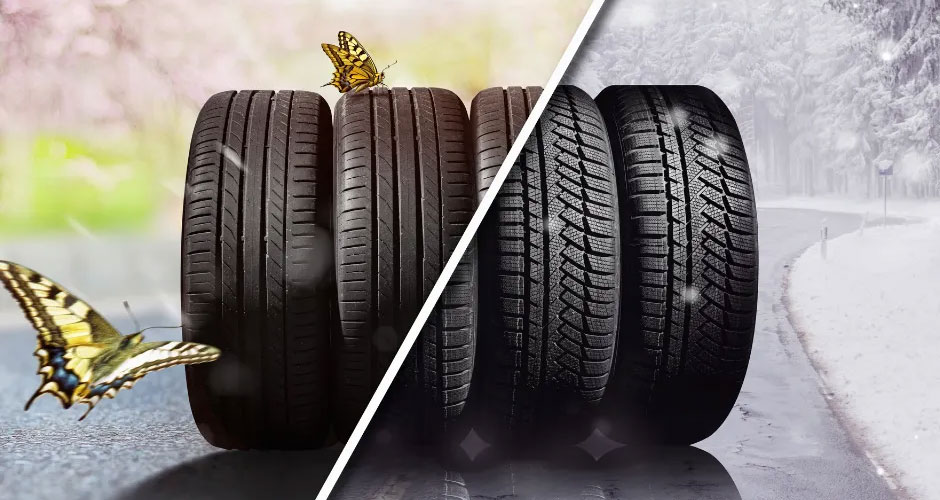
When winter comes around, it’s time to think about the tires for your car. It is essential to select tires that provide traction on slippery surfaces. These include rain, snow, or ice that completely covers the road.
The type of tires your car requires depends on various factors. Some factors include the car model and your driving habits. All-season tires offer reasonable performance in various weather conditions, but are they suitable for winter driving?
Just keep reading to learn more!
Pros of All-Season Tires for Winter
All-season tires deliver rounded performance throughout the year. They offer traction and handling on wet roads and even under light winter conditions.
Learn more about their benefits below:
Versatility
These special tires can handle different weather conditions. In winter, these tires also provide traction on both dry and wet surfaces. This means you can use these tires even when there is snow and slush.
Convenient and Cost-Effective Option
You don’t need to switch tires during the summer season! This is because you have one set of all-season tires that work well in different weather conditions. These tires save time and reduce the winter maintenance costs of owning separate tires.
Traction in Mild Winter Conditions
All-season tires are reliable when it comes to winter. Their adaptability allows you to drive on light snow and slush without being in danger. The tread patterns can handle surfaces lightly dusted with snow. The tire materials also stay flexible in colder weather.
Cons of All-Season Tires for Winter
There are still some drawbacks you should consider when choosing your tires.
Check them out below:
Limited Traction in More Severe Winter Conditions
All-season tires are not actually suitable for heavy snowfall and ice. This is because they mainly work well for light snow and slush. The lack of specialized tread patterns can make gripping the road more challenging.
Unreliable Performance on the Ice
All-season tires don’t perform as well on the road. This means you need tires that have rubber compounds and treat designs, much like standard winter tires. All-season tires might not actually provide traction on ice, which can make it harder to control your vehicle.
Can Be Sensitive to Temperature
As these tires become rigid, their grip starts to slip away. This can happen in freezing temperatures if you don’t maintain them properly. This is called rubber compound hardening. Rubber compound hardening can actually impact the tire's traction on the road. Braking distances might also increase, making overall handling less predictable.
Things to Consider When Buying All-Season Tires for Winter Driving
When selecting tires, it's important to consider both your location and the type of vehicle you have. These two factors can help you make the right decision in the long term. Used cars may require more stable winter tires due to their longer driving history.
Here are the things to consider:
Local Climate
You must evaluate your local weather conditions. Evaluating your local area ensures you choose the right tires for your car.
This means you should choose all-season tires for mild winters with light snow. They can still perform well without disrupting your driving. On the other hand, you should choose a regular winter for heavy snowfall and ice.
Your Personal Driving Habits
You should also consider your driving habits. Your unique patterns of vehicle use can influence the performance expectations you should have from your tires during winter.
Your tires will face bigger challenges on snowy roads or mountainous terrains. This means you should use winter tires that have unique tread patterns and rubber compounds. These tires can provide optimal traction and control in the toughest winter environments.
You should also think about your usual driving environment. Urban areas often benefit from prompt snow removal and salting, which results in relatively well-maintained roads. All-season tires are suitable for these environments. However, people living in rural or less serviced areas may encounter less predictable road conditions. This means they require the enhanced winter capabilities of specialized tires.
Think About Your Safety
You should always think about safety out on the road. Remember that all-season tires have disadvantages in severe winter weather. Choosing the right tires can prevent accidents and make driving safer.
Contact Race Auto Group When Choosing All-Season Tires During the Winter
You should always consider your local weather and driving habits before choosing tires. This is because you want the tires to match your car’s needs. All-season tires may not actually be suitable for your car.
Do you need more expert guidance when it comes to choosing winter tires? Contact Race Auto Group today. We can provide valuable insights and assist you in making an informed decision to ensure a safer and more secure winter driving experience. You can also book an appointment to revamp your car.
